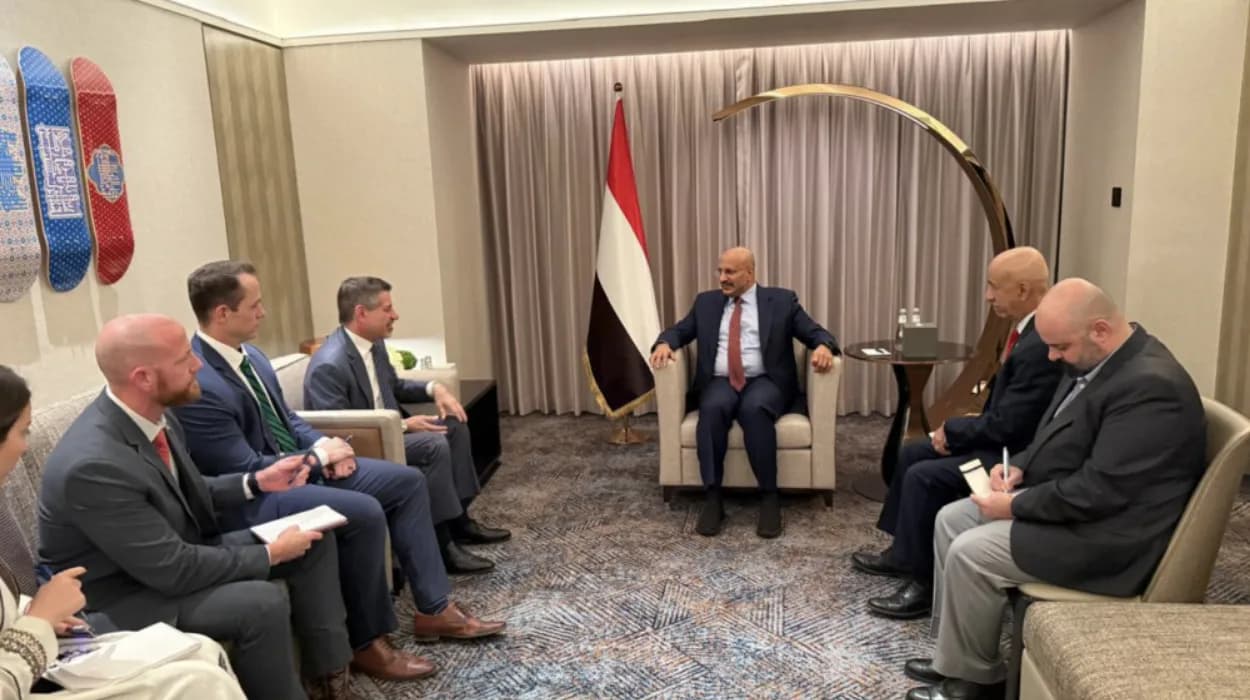Yemen, situated at the southern end of the Arabian
Peninsula, holds a strategic position bridging the Middle East, the Horn of
Africa, and key international maritime routes, including the Red Sea and the
Gulf of Aden. Despite enduring a prolonged conflict and complex humanitarian
challenges, Yemen remains a pivotal actor in regional political and economic
cooperation initiatives. Its geographic location and historical ties have made
it a critical piece in broader regional dynamics involving Gulf states, international
organizations, and neighboring countries. This article explores Yemen’s
multifaceted participation in regional political agreements, economic
cooperation efforts, and the implications of these engagements for stability
and development in the Middle East.
Regional Political Cooperation
The political landscape involving Yemen is deeply
intertwined with regional diplomacy and contestations. Yemen’s conflict, which
escalated with the rise of the Houthi movement and subsequent interventions by
neighboring states, has drawn intense regional involvement, notably from Saudi Arabia, the United Arab Emirates (UAE), and Iran, reflecting a broader struggle
for influence in the Middle East. While the conflict has posed challenges,
Yemen has remained part of ongoing regional dialogue and peace efforts aimed at
resolving the crisis.
One of the key frameworks that shaped Yemen’s political
engagement regionally was the Gulf Cooperation Council (GCC) Initiative of
2011, which sought to address the political upheaval during the Arab Spring.
The GCC initiative, supported by the United Nations, aimed to facilitate an
inclusive political transition in Yemen, engaging various Yemeni factions.
Although disrupted by later conflicts, this initiative set a precedent for multi-lateral
regional political mediation involving Gulf states and international
organizations.
The United Nations continues to play a vital role with
efforts facilitated through the Office of the Special Envoy for Yemen, which
coordinates inclusive peace processes. Regional actors have varied positions,
yet there is broad agreement on the need for dialogue that includes
marginalized groups and diverse Yemeni political actors. The complex regional
context also ties Yemen’s fate with broader security concerns, such as the
security of Red Sea navigation routes and the stability of bordering states,
underscoring the importance of political cooperation beyond Yemen’s borders.
Economic Cooperation and Integration Efforts
Yemen’s economy has been severely affected by ongoing
conflict and humanitarian crises, but it nevertheless retains significant
potential for regional economic cooperation. Prior to escalation of
hostilities, Yemen pursued economic agreements with regional bodies, including
the GCC, which aimed to foster trade, investment, and development cooperation.
Yemen's integration into regional economic frameworks remains a priority in
rebuilding its economy and infrastructure.
Efforts to unlock Yemen’s economic potential emphasize the
necessity of restoring peace alongside economic reforms and infrastructural
investments. Yemen’s economy is diverse, encompassing agriculture, fisheries,
and an important strategic location for global maritime trade. Regional
cooperation initiatives have targeted improvements in energy production,
transport connectivity, and cross-border trade facilitation. Yemeni ports along
the Red Sea are critical gateways not only for Yemen but for regional trade
routes connecting to Africa, the Middle East, and Europe.
Regional initiatives also focus on humanitarian aid
coordination, food security, and infrastructure rehabilitation, given the
country’s reliance on externally financed development projects. Cooperation
through regional organizations helps mobilize resources and stabilize markets,
with a view to re-establishing Yemen as an active economic partner in the
Middle East.
Challenges and Opportunities
Yemen’s engagement in regional political and economic
cooperation faces considerable challenges owing to ongoing conflict and
instability. Regional rivalries, especially the proxy competition between Saudi
Arabia and Iran, have complicated peace efforts, with military interventions
exacerbating humanitarian distress and economic disintegration within Yemen.
These tensions affect cooperation efforts by limiting trust and complicating
negotiation dynamics.
Nevertheless, opportunities persist for Yemen to leverage
its strategic positioning and regional relationships to foster political
reconciliation and economic recovery. Multilateral platforms including the
United Nations, the Arab League, and regional security coalitions seek to
balance regional interests to reduce conflict spillover and promote
development.
Economic recovery initiatives are increasingly linked with
peacebuilding attempts, emphasizing sustainable development and inclusive
governance. Regional infrastructure projects, including energy grids and
transport corridors, offer possibilities for Yemen to re-integrate economically
while contributing to regional stability.
Yemen’s role in regional political and economic cooperation
is complex but essential. Amidst the challenges of conflict and humanitarian
crises, Yemen remains a focal point for regional power interactions and
cooperative frameworks aimed at fostering peace and economic development.
Political dialogues supported by regional actors and the United Nations strive
for an inclusive resolution to Yemen’s multifaceted crisis. Economic
cooperation efforts underscore the strategic importance of Yemen in regional
trade and development initiatives.
Sustained engagement in regional cooperation presents an opportunity to address Yemen’s humanitarian needs and long-term reconstruction. Stability in Yemen is crucial not only for the country itself but for broader regional security, maritime safety, and economic integration in the Middle East. The future of Yemen’s regional relations will depend largely on diplomatic progress, regional collaboration, and international support aimed at establishing peace and promoting sustainable growth.
